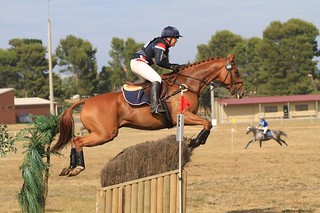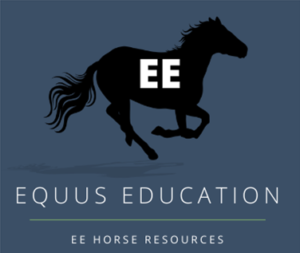Have you always been interested in horses and when did you start out in the industry? What is it exactly that you do?
I have always loved horses, since I was a little girl, I would only read horses books, fact or fiction, and I would study them for hours!
It took me until I was 8 or 9 to convince my parents to get me a horse, but after that I lived and breathed horses every second I could! I attended pony club and competed in just about every discipline over the years!
I loved to learn as much as I could about anything horse related, especially all the different training techniques. I got my first “proper” horse job in my gap year before I went to university. I worked at a standardbred stud handling weanlings, and after weanling season I stayed on there as a stable hand and driver, then went on to do yearling preparation with standardbreds as well! All that led me to my passion for standardbreds.
After a couple of years in a non horse related degree, spending every weekend and holidays back home working with horses, I dropped out of uni and went to a college to study Equine Myofunctional Therapy. I loved the course and became a qualified horse masseur.

All along I kept working in the harness racing industry and became even more involved in it as a muscle therapist. That’s when I got my first ‘standy’ as a riding horse, and he blew me away and proved all the rumours about standardbreds being horrible riding horses wrong! He was the most amazing horse to work with and ride and he is what prompted me to start a standardbred re-education and rehoming program!
From there I have ended up working part time as an Equine Myofunctional Therapist and part time working on re educating and rehoming standardbreds off the track!
How much of your day/week is related to horses?
All of my week is dedicated to working with horses, I literally live and breathe them!
In this field of work, is it possible to be a full time professional and earning a liveable income?
Working full time as an Equine Myofunctional Therapist it is possible to have a liveable income, although it is very hard on the body so I don’t think its a good long term viable thing to do. I find I get very sore if I massage too many horses in one week and I want to be able to do it for years to come so I keep my limit to 20 horses a week!
As far as making a liveable income working full time out of the standardbred rehoming, I think it would be impossible. I find it very hard to even cover my costs running the program, its very much something I do out of love! For every penny I lose running the program though, I get a mile of satisfaction out of seeing the horses go on to new lives so it makes it worth while to me, and luckily I have an amazing husband who will work extra hours to help support me and all our horsey kids!!
What are the general steps taken to be employed in such a role?
To be employed as an Equine Myofunctional Therapist it was a matter of completing the course and then slowly building a client base. It takes time but I found people talk a lot if they are happy with your work and soon enough I had a decent client base!
In the standardbred rehoming I was lucky enough to have had a fair bit of experience with them as racehorses so had a background of knowledge of what life was like for them as racehorses. But, as much as it helped me, I don’t think it is a total necessity to be able to run a rehoming program.
They are an amazing breed to work with, and they have such wonderful temperaments, so I think anyone that loves horses and has a decent knowledge base of training horses could run a rehoming program.
I found the horses have taught me so much along the way. I think back to when I started and realise that I was almost as green as the horses I was breaking in, but they are such a forgiving breed and worked with me, and along the way I’ve picked up so many new skills and methods – they have made me a much better trainer!

Any advice for those interested in pursuing this line of work?
For anyone wanting to pursue a career in horse muscle work, I say just be careful not to over work yourself, as it’s amazing how much working horses’ muscles can end up hurting you if you’re not careful and don’t pace yourself!
For anyone interested in standarbred rehoming, I say do it! It’s not something that will make you rich financially but it’s hands down the most rewarding thing in the world!!
Is there anything else with horses you’d love to learn about or try?
Id love to learn more about Equine Nutrition, and I plan on doing a nutrition degree in the future. I always aim to learn more and more about training horses and horse psychology, so that’s really a life time goal to keep on learning! You can never know all there is about horses, that what I love about a career in them the most!
Favourite horse memory?
So many good memories! I suppose riding Norie, my gorgeous standy – the first horse I ever broke to saddle – out in the open for the first time. That moment where I realised I could trust him and he would do anything for me and look after me was a feeling words could not describe!
Future goals?
My future goals are to keep doing what I’m doing, but to keep getting better at it! I hope to eventually buy more land and to get a better set up, so I can rehome more standardbreds. That’s my biggest goal for the future!
Best thing about your sport/profession?
The best thing as an equine myofunctional therapist is seeing a horse’s behaviour and performance improve. It’s the sense of satisfaction knowing you helped the horse!
The best thing about rehoming the standies is hearing from their new homes and hearing all the wonderful things they are doing! It is by far the most rewarding thing to see them go on into wonderful new lives!!
“I live in a house but my home is in the stable.”






